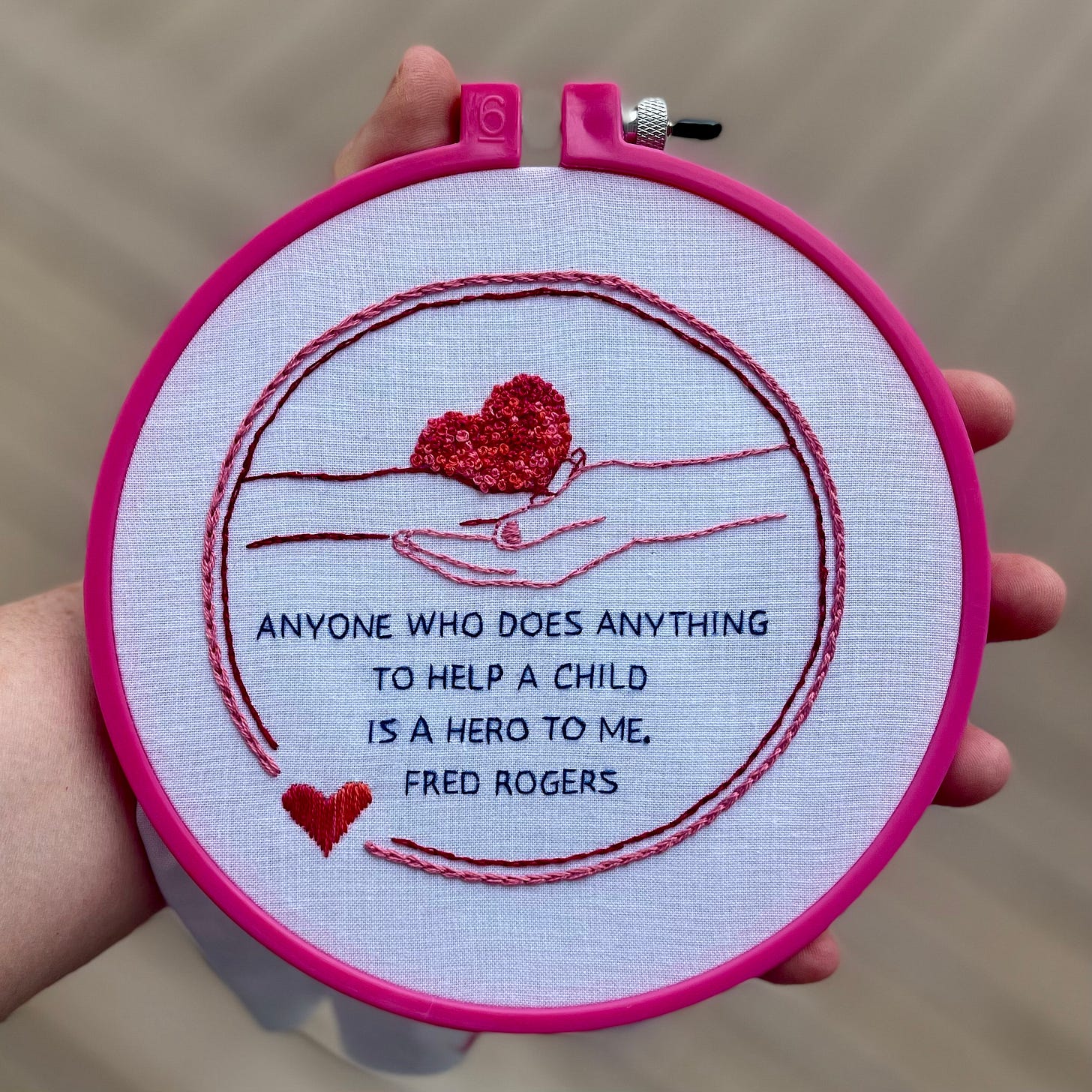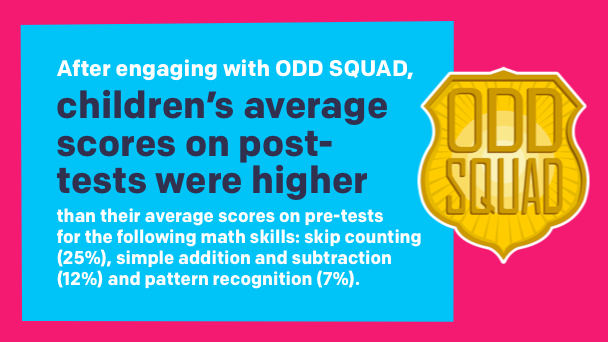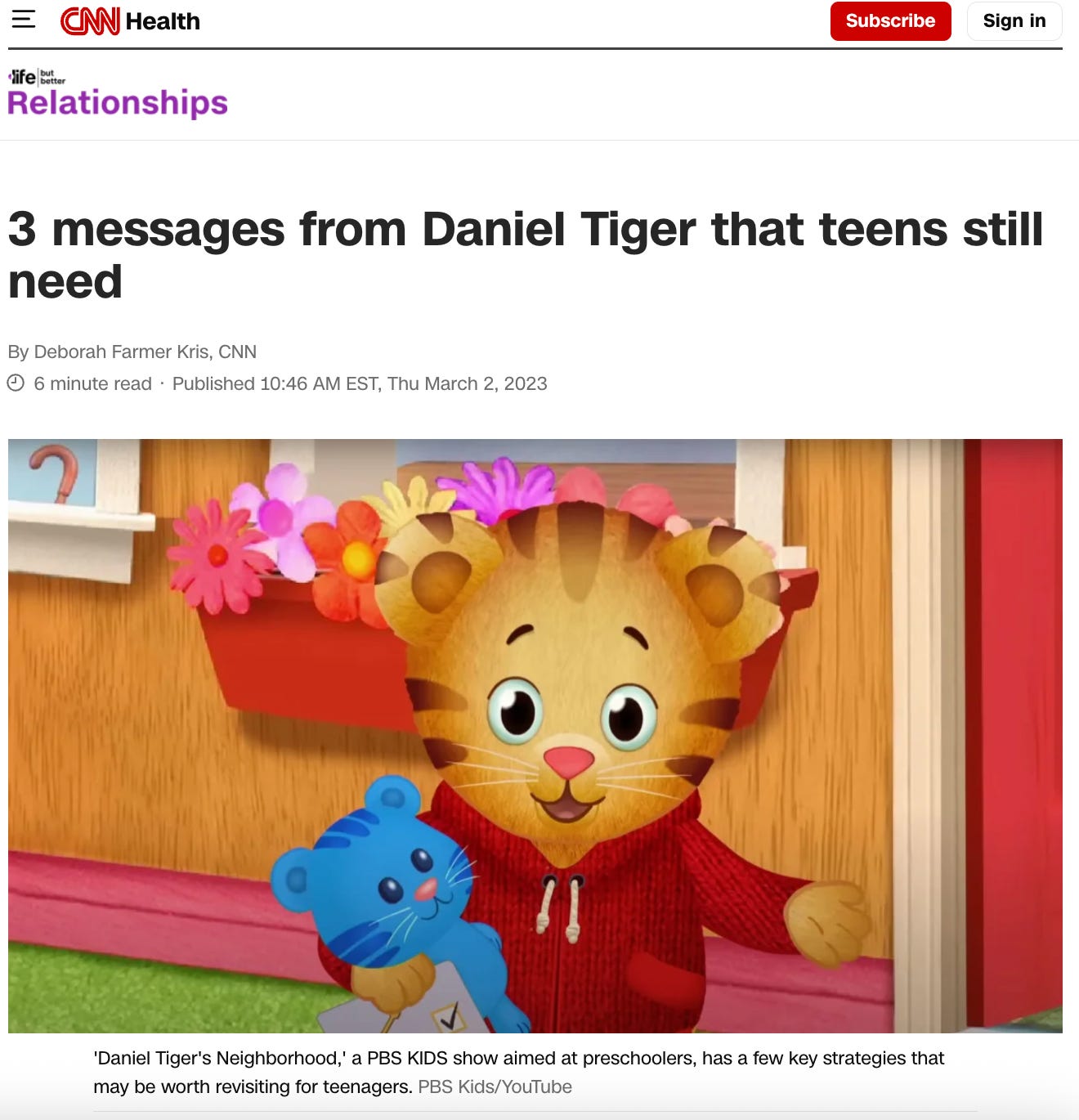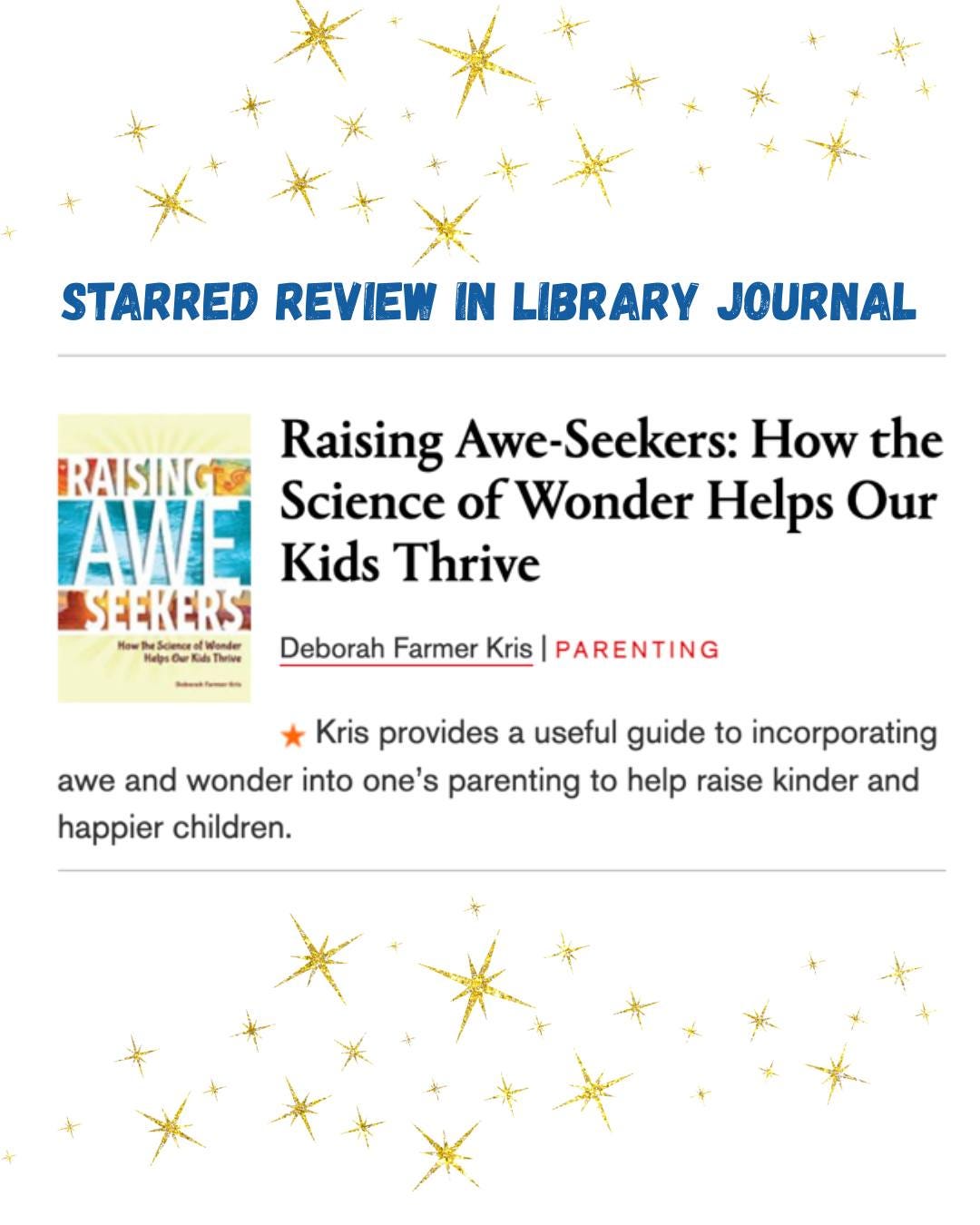I have worked with PBS KIDS for 10 years — as a parenting columnist, a blog editor, a curriculum specialist, and a show advisor. I was a “PBS kid” growing up, hugging the TV to say goodbye to Mister Rogers, listening to my Sesame Street Disco vinyl record, and recreating the science experiments I learned on 3-2-1 Contact.
Currently, I work as a show advisor for Carl the Collector, a show featuring a warm-hearted autistic raccoon and who lives in Fuzzytown with his loyal band of friends (some neurodivergent, some neurotypical — all creative, kind, and delightful).
Working with PBS KIDS has been the professional privilege of a lifetime. You know how they say “never meet your heroes?” Well I have, and the heroes behind PBS KIDS are everything I hoped they would be. Every single person I’ve worked with — administrators, child development experts, writers, producers, and social media and game creators — has the CHILD at the top of mind.
There’s been an outpouring of love for PBS KIDS since the government’s move to cut funding. Since I’ve been lucky enough to see “how the sausage gets made,” I want to add some “did you know?” context to these well-deserved accolades.
#1) PBS KIDS is the most trusted educational resource in America
For 21 straight years, national surveys have named PBS as THE most trusted institution in America. A full 82% of Americans value PBS KIDS’ educational programming and resources. PBS stations reach more families with young kids than any other children’s TV network. In fact, a full 95% of Americans have access to PBS KIDS. For free.
#2) PBS KIDS gets kids
There’s a reason kids love PBS KIDS shows — they are created by adults who really get what kids want and need.
In my new book “Raising Awe-Seekers: How the Science of Wonder Helps Kids Thrive” I share this anecdote about Fred Rogers, whose spirit still infuses our work:
Angela Santomero, the creator of Daniel Tiger’s Neighborhood and Fred Rogers’ self-proclaimed “number one fan,” told me that Rogers taught adults how to talk to kids in an “honest, open, genuine, and respectful way.” Rogers approached his conversations with kids with “fearless authenticity,” she said – and that included conversations about life and death.
As part of every show Mr. Rogers fed his fish. One day he arrived at the set and found a dead goldfish in his aquarium. Rather than replacing the fish without informing his TV audience, he decided to use this moment to talk to his young viewers about death and to share childhood memories about how he felt when his dog had died.
Santomero said this choice reflects one of Roger’s guiding principles: “What is mentionable is manageable.” Rogers once said, “Anything that is human is mentionable, and anything that’s mentionable can be more manageable. . . . When we can talk about our feelings, they become less overwhelming, less upsetting, and less scary.”
#3) Every single episode is directly tied to curriculum standards
PBS KIDS has vetted curriculum frameworks for math, literacy, social studies, science, social and emotional skills, and character development. I worked on the most recent revision of the social, emotional, and character development framework — and part of that work was reviewing and integrating feedback from top child development experts around the country. What does emotional regulation, empathy, courage, and responsibility look like at age 2, 3, 4, 5, 6, 7, and 8? You can see the answer in action on Daniel Tiger’s Neighborhood, Alma’s Way, and Carl the Collector . . .
#4) Every single draft of every single episode is reviewed by experts
You heard that right. Ready, Jet, Go episodes are fact-checked by Dr. Amy Mainzer, a NASA Jet Propulsion Laboratory astronomer. Super Why episodes are reviewed by literacy specialists. For my work on Carl the Collector, I’m joined by two autism experts and we review every draft from premise to script to animation.
So when I talk to parents of young kids who are worried about screentime, I tell them this: “If you need your kid to watch a show while you finish work or prep dinner, turn on PBS KIDS. If you are looking for something fun to watch together, try PBS KIDS. Every show is vetted by experts and designed to support your kids’ growth.” Kids apps and media are kinda the wild west — it’s a lot for parents to navigate and keep on top of. You can feel good about what they are watching and playing on PBS.
#5) Kids really do learn science, math, and language skills
Yup. I’ll let the PBS Social Media Team share this one:
#6) Kids really do develop social, emotional, and character strengths — and those lessons endure
I’ll just give one example. Kids who watch Daniel Tiger’s Neighborhood “demonstrated greater empathy, recognized emotions better, and felt more confident in social interactions” than peers who didn’t watch the show. The first cohort of kids who watched (including my oldest child!) are now teens. And guess what? According to a brand new study out of UCLA, the messages they learned are sticking.
This makes me feel especially good about the CNN article I wrote a couple of years ago:
#7) PBS KIDS reflects the best of who we are
Sesame Street gave us a diverse, welcoming neighborhood where “everybody knows your name.” Mister Rogers (and the Daniel Tiger reboot) make compassion and kindness attractive. Wild Kratts and Nature Cat introduce kids to the wonders of our world.
And as Carl the Collector creator Zach OHora shared in a recent interview, “Carl the Collector” is the type of story that really could make this world a better place.
“If we create a world where neurodiverse people and neurotypical people interact more naturally, everyone benefits. It’s like the Temple Grandin idea: If we make a world where neurodiverse people can navigate more easily, neurotypical people will see that this kind of problem-solving can be positive for everyone.”
The “Carl” team mirrors this vision, with autistic people working on every stage of production — from show advisors to writers to artists to voice actors. Like Kai, the amazing kid who voices Carl. And it is also the most collaborative and innovative team I have EVER been a part of professionally.
#8) PBS KIDS reaches kids where they are
Did you know that 60% of viewers reside in rural communities that may not have as much access to as many educational resources?
Did you know that PBS KIDS averages 364 million monthly streams across digital video platforms and more than 40 million games played on the PBS KIDS Games app monthly? No cost. No subscription.
Did you know that PBS has 350 local owned and operated member stations that tailor their outreach and programming to the needs of their communities? I’ve worked with some of these stations on parent education initiatives.
#9) PBS KIDS supports parents, too
Have you been to PBS KIDS for Parents? So many amazing resources.Activities, child development trackers, webinars, blog posts, book lists — and of course, you can learn a lot about parenting from Mom Tiger
#10) For all of this goodness, PBS KIDS is a teeny-tiny part of the federal budget
Public broadcasting is an unbelievable return-on-investment for Americans. It costs ~$1.60 per person each year to support kids’ learning and overall well-being.
For every $100 of federal spending, public broadcasting receives one penny — and most of that is given to local member stations that respond to the needs of their local community.
Funding PBS and PBS KIDS isn’t controversial! In fact, 85% of Americans agree that PBS stations provide an excellent value to their local community.
One last word
When I was working on a Fred Rogers’s tribute article, I spoke to a friend who had endured a childhood of abuse and poverty. She told me that Mister Rogers offered her a hand in the darkness during a difficult childhood:
“I can’t even read his name without tearing up. During those rough years, Sesame Street taught me to read, and Mister Rogers taught me to hope.”
So I’m giving Fred Rogers the last word here. Shortly before his death in 2003, Fred Rogers recorded this message for the adults who grew up “in his neighborhood”:
I would like to tell you what I often told you when you were much younger. I like you just the way you are. And what’s more, I’m so grateful to you for helping the children in your life to know that you’ll do everything you can to keep them safe. And to help them express their feelings in ways that will bring healing in many different neighborhoods. It’s such a good feeling to know that we’re lifelong friends.
Visit ProtectMyPublicMedia.org. Let’s protect PBS KIDS. Let’s protect that neighborhood.
Cheers,
Deborah Farmer Kris
P.S.
“Raising Awe-Seekers: How the Science of Wonder Helps Our Kids Thrive” comes out in THREE weeks, and I just found out it got a starred review in Library Journal. Readers know that I typically post my weekly Awe Diary at the end of each newsletter, but Substack tells me this missive is getting too long (I’ve got a lot to say about PBS KIDS!) — so I’ll double up on awe next week.











PBS raised me. It is why I am so different from the rest of my family. When I was three my Grandma died suddenly, and my mom was wrapped up in a cobweb of grief for many years. I knew she loved me, but she had gone dark and silent. Mister Rodgers and Sesame Street took over from her parenting with brightness, curiosity, kindness, and gentleness, and I couldn’t have been raised by a better mentor. My mother, father, and older sister all became far right conservatives and often laughed at my soft creative gentle demeanor. I sometimes wonder where I came from, as I am so very different from my “real” family. PBS raised me to be the lovely black sheep I am. I am forever grateful to them for helping me open up my soft heart in a hard world.